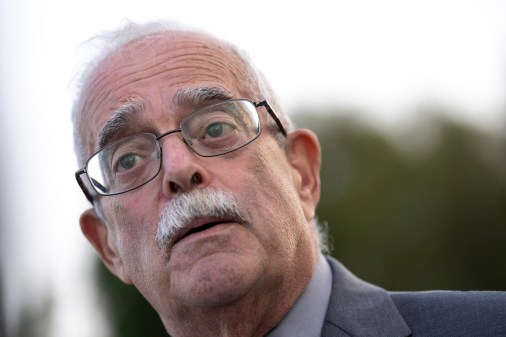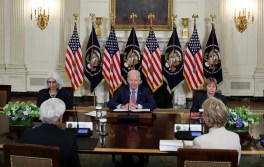Tony Scott: Government needs safe space for sharing good ideas

Federal Chief Information Officer Tony Scott would like to see a better system in place by which the government could solicit ideas for improvement without those ideas being stolen by competitors looking for an edge in landing a lucrative federal contract.
Scott spoke Thursday about a safe space for unsolicited proposals, which businesses currently have little incentive to share with the government out of fear their idea would fall into the hands of a competitor who could build upon it and win millions in the process despite not coming up with in the first place.
”That doesn’t encourage the kind of free flow of information and good implementation ideas that I think we need. Actually, the system today kind of acts as a barrier to that flow,” Scott said at FedScoop’s eighth annual Lowering the Cost of Government IT summit. “While we can do things with prizes, competitions and things like that, I think we need to do more in creating a safe zone for unsolicited proposals and good ideas, where we can have a conversation, have more things understood, and reward companies or agencies for submitting those kind of things.”
Scott said he would love to see industry consider how the government could create such an apparatus that would not only lead to good ideas, but strong implementation plans that make sure the ideas become a reality.
“Today’s world assumes a federal employee somewhere is going to think of an idea, write an RFP, get it right the first time and competitive process will generate the best implementation,” he said. “I’m not convinced that is always the case. We need a broader canvas from which to draw on.”
Scott also highlighted the progress of an idea that has come from the Obama administration: a $3.1 billion revolving modernization fund that allows agencies to replace legacy systems that are costly to maintain and increasingly becoming a cybersecurity liability.
According to Scott, the IT modernization fund along with a similar bill — the MOVE IT Act — are a sign officials realized “that we need to do something about upgrading and replacing legacy applications and infrastructure and the tools we use to manage IT in the federal government.”
“There is no one that I know that is debating whether this is needed or has got to be one of our high priorities,” he said. “The only debate really is what’s the best way to make that happen.”
Scott also said he is calling on agencies to make lawmakers aware of just how old some of their legacy systems are and why they are in such dire need of modernization. Scott compared the process to a mechanic informing a driver that crucial systems in their automobile need to be replaced for the vehicle to safely work.
“Wouldn’t you want to know the tires are worn out? That the brakes aren’t functioning? That the engine is about to blow up? Wouldn’t you want to know that?” Scott asked. “Wouldn’t you want to know what it would take to get that vehicle healthy again?”
Scott also said he has been pleased with the progress agencies have made with the Cybersecurity National Action Plan, and the work done in new hiring authorities that should allow the government attract and retain cybersecurity talent.
Yet even as this administration draws to a close, Scott believes there are still good ideas that need to come to life.
“I am unsatisfied because we have so much more work to do,” he said.
Contact the reporter on this story via email at greg.otto@fedscoop.com, or follow him on Twitter at @gregotto. Subscribe to the Daily Scoop for stories like this in your inbox every morning by signing up here: fdscp.com/sign-me-on.




